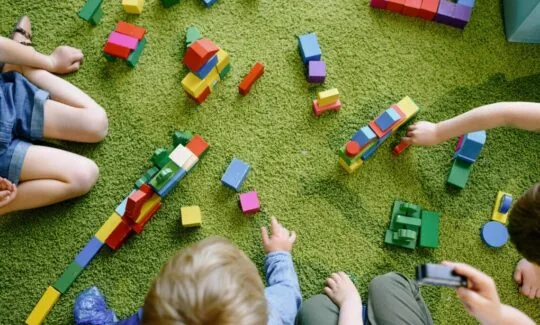Milk for Toddlers – Learn The Facts
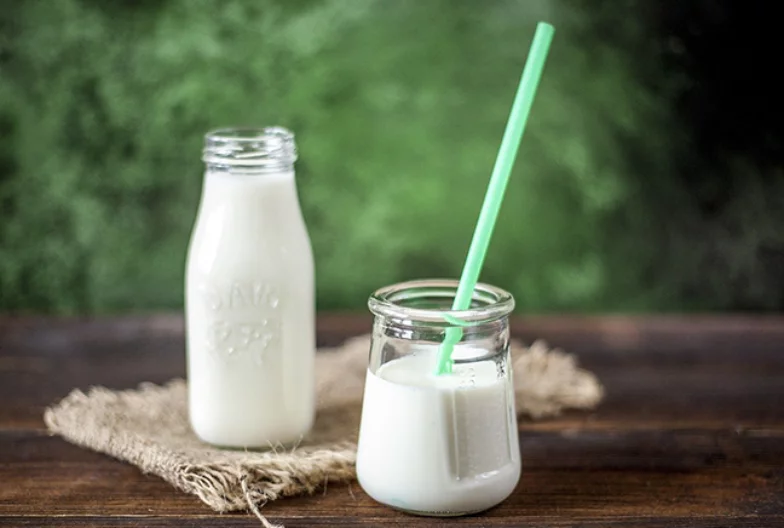
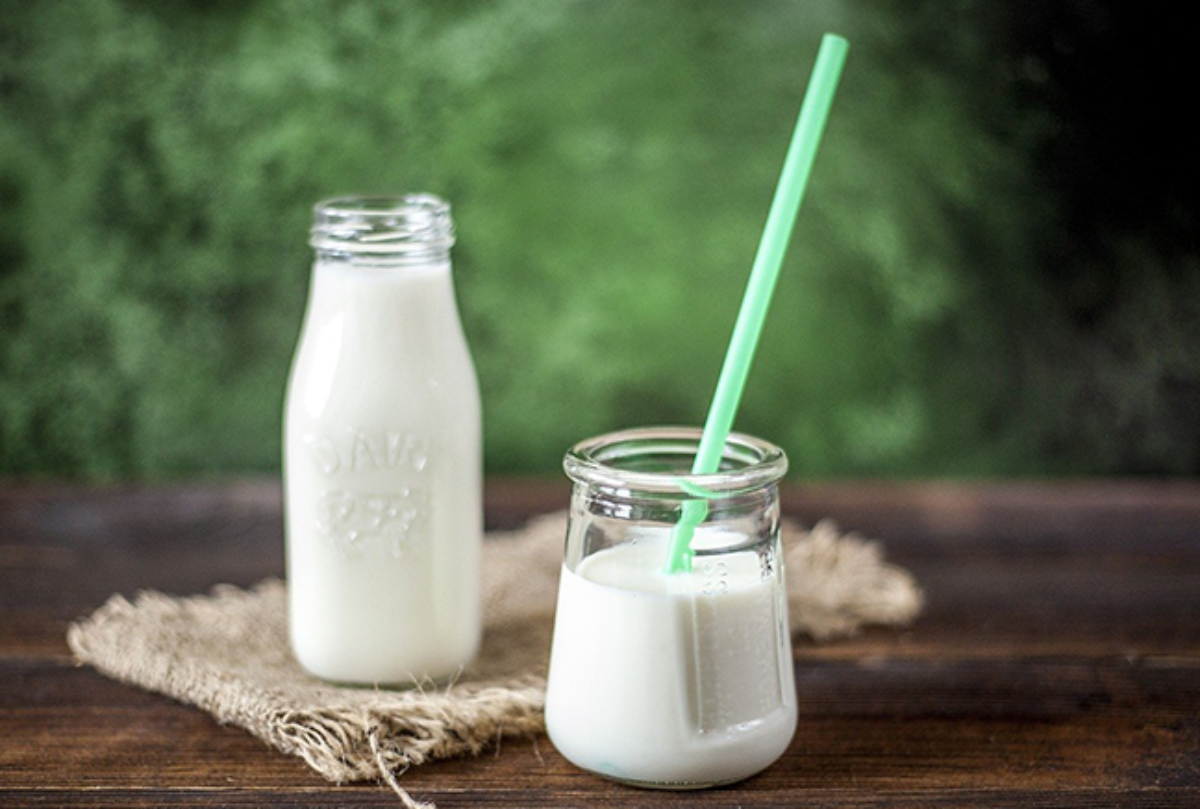
Why give toddlers milk?
Milk can be an important part of your child’s diet. It’s a good source of calcium and phosphorus, which are needed for healthy teeth and bones. Milk also provides protein, fat, B vitamins and energy to help children grow. However, as is the case with most things in life, moderation is key.
How much milk should my toddler be having?
Toddlers are recommended to have 1 ½ serves of dairy a day.
One serve is equal to 1 cup of milk OR 200g yoghurt OR 2 cheese slices.
There are lots of ways to make up the 1 ½ serves per day, including:
- 1 ½ cups milk
- 100g yoghurt + 2 slices cheese
- 1 cup milk + 100g yoghurt
- ½ cup milk + 1 slice cheese + 100g yoghurt
It’s recommended toddlers have no more than 2 cups of cow’s milk per day. This is because too much calcium can interfere with iron absorption. Additionally, lots of milk is likely to fill your child up, meaning they’ll have less appetite for other foods they need.
What type of milk should I give my toddler?
Between the ages of 1 and 2, children have increased requirements for fat and protein in their diets to support growth and development. Calcium and vitamin D are also important during this time to develop healthy bones, teeth and muscles.
Full fat cow’s milk is a nutritional powerhouse, rich in protein and calcium and a source of fat, vitamin D and other nutrients, all in an easily drinkable form. There’s perhaps no other food or drink quite so nutritious and easy for most kids to get down.
Toddler milk (also known as follow-on or stage 3 formula) is not necessary and has no advantages over cow’s milk.
What about plant-based milk alternatives?
When choosing a milk alternative, such as almond, oat or rice milk, try choosing a fortified variety.
Here we’ve compared the nutritional value of cow’s milk and plant-based milks (with added calcium) so you can see just what we’re talking about:
| Milk | Energy
(kJ/100 mL) |
Fat
(g/100 mL) |
Protein
(g/100 mL) |
Calcium
(mg/100 mL) |
Vitamin B12
(µg/100 mL) |
| Cow | 290 | 3.5 | 3.7 | 139 | 0.6 |
| Rice | 268 | 1 | 0.3 | 74 | 0 |
| Soy | 253 | 2.8 | 2.5 | 118 | 0 |
| Oat | 236 | 0.8 | 1.4 | 116 | 0 |
| Almond | 143 | 2.7 | 0.6 | 67 | 0 |
| Coconut | 103 | 2.2 | 0.2 | 120 | 0 |
*Note: these numbers are averages and may vary slightly between brands.
If you do choose to use a calcium-enriched milk alternative, either by choice or because your child is allergic to cow’s milk, you will need to include other sources of protein and vitamin B12 in your child’s diet under the guidance of a health professional.
Here are some dairy-free milk alternatives we recommend, all of which contain at least 3 g protein and 120 mg calcium per 100 mL, plus added vitamin B12:
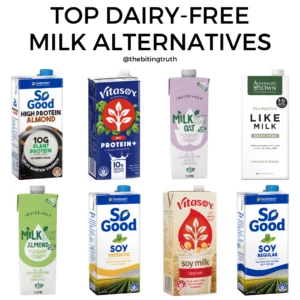
Should my toddler drink from a bottle or cup?
When your child starts drinking cow’s milk at around 12 months of age, it’s a good idea to wean them from the bottle and encourage them to drink from a cup.
Toddlers who suck on or fall asleep with bottles are at risk of tooth decay, termed ‘baby-bottle caries’. Using a bottle may also reduce their appetite for food if they fill up on milk, meaning they don’t get the nutrients they need for optimal growth and development.
Bottom line
Milk, specifically cow’s milk, is a valuable source of nutrition for toddlers. If for any reason your child is unable to tolerate cow’s milk, speak with your GP or dietitian to determine the most appropriate alternative for your child.
Enjoy more tips and tricks from our in-house Dietitians Anna and Alex from The Biting Truth – Toddlers & Constipation: What Can You Do?, 5 Tips To Get Your Child Eating More Veggies & A Guide To Introducing Solids
Only About Children can help your child to grow, make friends and explore the world.
Only About Children can help your child to grow, make friends and explore the world.
Related Reads


The 3-Day CCS Guarantee: What It Means For Families
From January 2026, the Australian Government is replacing the Child Care Subsidy (CCS) Activity Test to guarantee at least 3 days of subsidised early childhood education and care (ECEC) each week for children who need it. In this article, we summarise what this means for OAC families.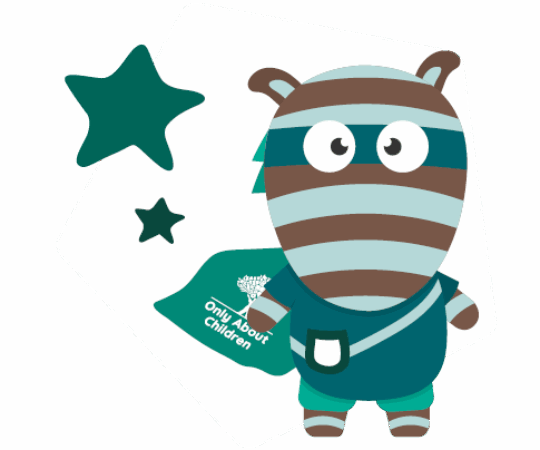

Every Conversation Matters: Turning Safety Talk into Action with Bunji
This National Child Protection Week, Bunji is helping children turn conversations about safety and wellbeing into real-life actions. From helmets and seatbelts to eye health and body safety, children are learning safe habits in fun, engaging ways, showing that every conversation about safety truly matters.